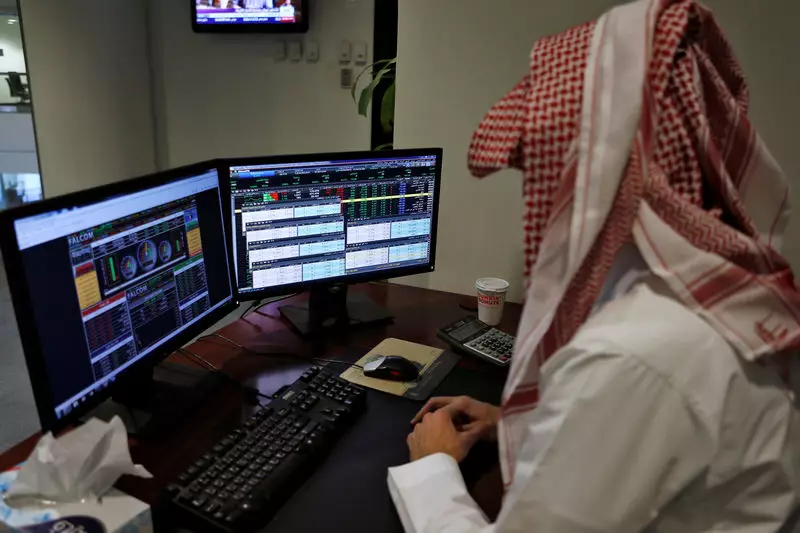The recent rise in the Saudi stock market has been a topic of conversation among investors and analysts alike. With the Tadawul All Share index gaining 0.26% and reaching a six-month peak, it’s tempting to view this as a strong indicator of robust economic health. However, a closer examination reveals underlying factors that suggest this growth may be more of a mirage than a sustainable trend. The numbers may paint a pretty picture, but they mask deeper systemic issues that could unravel unexpectedly.
Sectors Driving Gains: A Closer Look
The apparent success has primarily been driven by gains in the Real Estate Development, Hotels & Tourism, and Energy & Utilities sectors. While these industries indeed showcase some resilience, it’s essential to recognize that they are significantly influenced by global economic conditions, particularly fluctuating oil prices. For instance, the energy sector remains a double-edged sword. Recent modest increases in crude oil prices, such as a 0.05% rise to $74.66 a barrel, do not guarantee a sustained bullish trend, especially in an era of potential global economic downturns.
Companies like Kingdom Holding and Al Baha Investment have logged impressive individual gains, with Kingdom Holding surging by 9.80%. However, it’s crucial to question whether these gains stem from genuine operational success or merely from speculative bubbles and market conditions manipulated by larger players. In an increasingly interconnected global economy, a singular sector’s growth cannot shield the entire market from the winds of economic change.
The Disparity Between Winners and Losers
In stark contrast to the standout performances, lagging stocks tell a troubling story. Companies like AL JOUF CEMENT COMPANY and Arabian Pipes Company saw declines of 3.57% and 2.50%, respectively. This divergence in performance hints at an unhealthy market ecosystem where a few are basking in prosperity while many others are struggling. Such disparities should raise alarm bells for investors, particularly those considering entering the Saudi market. A market that presents such varied performance is inherently unstable and could very likely see a correction in the near future.
Inflation and Currency Pressures
Currency movements also play an important role in this financial theater. The EUR/SAR rate has increased by 0.77% while the USD/SAR remains unchanged. This situation could lead to increased inflationary pressures, raising costs for businesses and consumers alike. As inflation rises, consumer spending may decline, which in turn could affect the very sectors that appear to be flourishing today.
Moreover, the recent decline in the US Dollar Index indicates that global investors may be seeking safety in more stable assets, potentially diverting capital away from riskier markets like Saudi Arabia’s. In these turbulent economic conditions, one has to question the sustainability of the gains observed in the Saudis’ equity markets.
Navigating Hurdles Ahead
Investors hoping for a linear path upwards should brace for complexities. The seeming buoyancy of the stock market might lull decision-makers into a false sense of security, which can be dangerous. With potential geopolitical tensions, climate change effects on oil production, and increased competition from renewable energy, the overarching reliance on oil is a ticking time bomb.
While the statistics may shine brightly for a fleeting moment, wise investors will remain skeptical about the fundamentals that truly drive the Saudi economy. In the end, recognizing the discrepancies between statistics and real-world conditions is vital for making well-informed, strategic investment decisions in today’s precarious economic environment.

